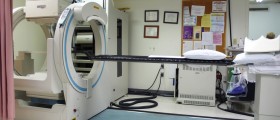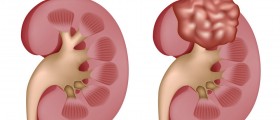Each and every person who has developed esophageal cancer is wondering for how long he or she will live and whether there is chance to be completely cured. These people undergo a lot of medical exams. After staging the disease, their medical teams will make a plan and recommend certain therapies and treatments to the patient. In some people who live with esophageal cancer, the disease can be brought under control. The disease is, however, recurrent and may return at any time.
Unfortunately, not all patients are that lucky. Some are diagnosed in the later stages when the disease has significantly progressed and the cancer has already spread to many organs. The prognosis in such cases is not so good and patients may only undergo palliative treatments aimed at minimizing their symptoms and making them more comfortable.

Esophageal Cancer: Stages of the Disease
Esophageal cancer is classified according to stage, and there are 4 stages. In the initial stages, the cancer affects only the specific organ, in this case the esophagus, while later stages are characterized by large tumors infiltrating the nearby tissues and organs. In the terminal stage, the cancer spreads to other organs in the body.
Stage 0 of esophageal cancer is the best possible stage a person can be diagnosed with. This is actually the mere beginning of tumor development, meaning that cancer affects only the lining of the organ. There are no symptoms and signs of the tumor at this point, and the survival rate is great, with 80 to 90% of all patients surviving 5 year after being diagnosed and receiving treatment.
In stage I, the cancer has progressed to affect the deeper layers of the esophagus, but it has not yet spread to regional lymph nodes and other organs. Thirty-four percent of all patients diagnosed with this stage of esophageal cancer will stay alive for the 5 following years, if they receive timely and appropriate treatment.
Stage II of esophageal cancer is characterized by the spread of the tumor outside the esophagus. The regional lymph nodes are affected and only 17% of all patients manage to survive for 5 years after being diagnosed, even with the best treatment.
In stage III esophageal cancer the tumor infiltrates the surrounding tissues. This is the time when patients start experiencing severe problems with swallowing and complain about intensive throat pain. Around 30% of patients who have been treated with radiation therapy and chemotherapy have a chance to live at least 3 to 5 years after being diagnosed.
The end stage of esophageal cancer, stage IV, is characterized by the spread of cancer cells to distant organs in the body. Only 2.8% of patients diagnosed with aggressive treatment may survive 5 years after establishing the diagnosis.
Knowing the Symptoms of Esophageal Cancer
Only after the tumor grows to a certain size do patients with esophageal cancer start experiencing symptoms. Painful and difficult swallowing and accompanying weight loss are the initial problems such patients face. These symptoms are reported in stage III and IV.
Progression of the disease is associated with a hoarse voice, frequent hiccups, and throat pain. A patient may even vomit blood.
Because of the mentioned people at risk of developing esophageal cancer are supposed to control all the risk factors and adopt healthy lifestyle. Those with illnesses that are associated with the onset of esophageal cancer undergo screening. Only this way the tumor can be diagnosed in early stages and treated more successfully.
The risk factors include being aged 45 to 70, being male, having a history of smoking and heavy drinking, and suffering from Barrett's esophagus, and they should cause your doctor to consider screening tests.
Latest Treatment Options for Esophageal Cancer
- Chemoprevention. Researchers are looking at using aspirin and acid-reducing medication to prevent esophageal adenocarcinoma in people with Barrett’s esophagus. Research is still ongoing, and people are encouraged to talk with their doctor before taking any medications or dietary supplements for this reason. Learn about the basics of chemoprevention.
- PET scan. In addition to helping find out the cancer’s stage (see Diagnosis), PET scans may be used to find out how well treatment is working to shrink a tumor before surgery. Researchers are studying the use of PET scan to evaluate and possibly change treatment before surgery.
- Chemotherapy advances. Doctors are studying combinations of different drugs, such as capecitabine (Xeloda), cisplatin (available as a generic drug), docetaxel (Docefrez, Taxotere), fluorouracil (5-FU, Efudex), irinotecan (Camptosar), oxaliplatin (Eloxatin), paclitaxel, and trifluridine-tipiracil combination (Lonsurf). Research is ongoing to find new drugs that are effective for esophageal cancer.
- Targeted therapy. Several types of targeted therapies are currently being studied for esophageal cancer.
- Immunotherapy. New drugs and combinations that include immunotherapy continue to be studied.
- Palliative care/supportive care. Clinical trials are underway to find better ways of reducing symptoms and side effects of current esophageal cancer treatments to improve comfort and quality of life for patients.

















Your thoughts on this
Loading...